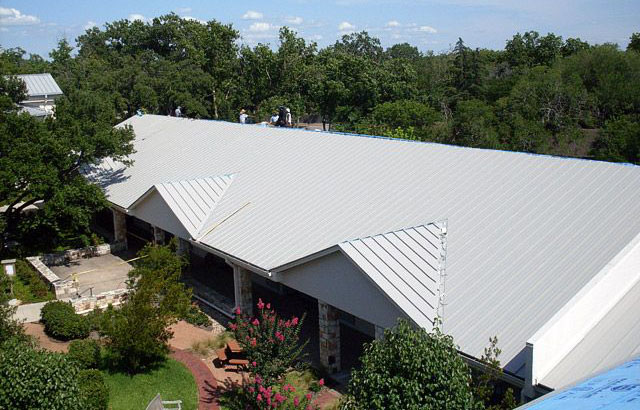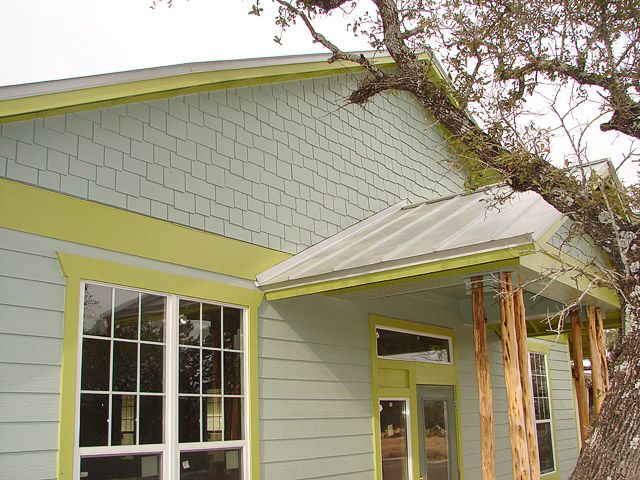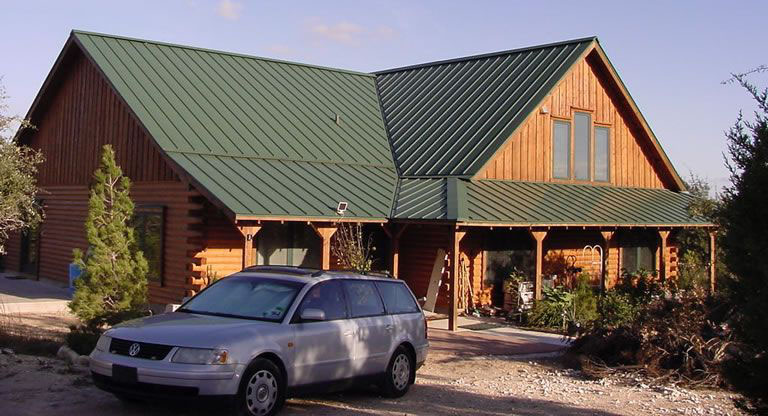Metal Roof Mythbusting: What About Noise, Dents, & Heat?
As metal roofs gain popularity as an aesthetically pleasing and durable roofing option, many soon-to-be customers have questions: are they loud? Will they dent with hail? Wouldn’t they get super hot? What about rust? Let’s explore the answers!

Are metal roofs noisy?
When we think of metal roofs, we often imagine a tin roof. And while the pitter-patter from a light shower on a tin roof may be relaxing for a night at the family farm, you wouldn’t want excessive noise in your own home. Fortunately, not all metal roofs are made of tin! In fact, there are many different kinds of metal used for commercial and residential roofs.
Metal roof noise levels are often the same (or even quieter) than the more-common asphalt roofing systems. Sheathing and high-quality underlayment reduce noise long before it reaches the inside of your home. There’s solid wood and a thick felt layer in between you and your metal roof. Higher ceilings reduce volume even more.
Just how quiet is a metal roof while it’s raining? The Acoustic Group at the University of Luleå in Sweden actually determined that it only produces fifty-two decibels in volume. That’s just about the same as a quiet conversation, which averages to fifty decibels.
Does hail cause dents in a metal roof
Metal roofs are heavily resistant to hail damage. Underwriters Laboratories, a not-for-profit organization that informs consumers on product quality, conducted a controlled test on the durability of roofing systems. They named it the “UL 2218 Impact Rating”.
The test involves dropping a metal ball of two inches in diameter from twenty feet in the air. They drop the ball on the same spot twice in a row. The roof then receives a one-through-four class rating. A class four rating is the highest durability score where there is absolutely no evidence of cracking or tearing.

Most hailstorms won’t even cause a cosmetic impact on a metal roof. This is especially true for thicker, 24-gauge metal roofs. Even if a very large hail storm were to cause dents in a metal roof, there are aesthetic ways to reduce the noticeability of them. Matte finishes, solid deck support underneath the roof, and ribs (rather than strictly flat panels) can prevent obvious cosmetic defects even in the case of a larger storm.
Wouldn’t a metal roof get hot?
Metal roofs actually reflect heat even better than a typical asphalt roof. A study funded by the US Department of Energy found that “a roof surface with high solar reflectance and high thermal emittance resulted in cooling energy savings in moderate and hot climates.”
As asphalt roofs absorb heat, it radiates into your home. As metal roofs reflect heat, it’s pushed away from your home. Many homeowners see up to a 25% savings on their energy bills with a metal roof. A properly insulated metal roof will outperform and outlast other materials.

Does a metal roof develop rust?
Even in coastal areas, metal roofs won’t rust. Some types of metal used for roofing are combinations of different materials. Zinc, silicone, and chromium are used alongside Galvalume and stainless steel. Other materials like aluminum and copper don’t show nasty red-brown rust.
Want to learn more about metal roofing?
RoofCrafters is your last stop for everything metal roofing-related. We’ve served the central Texas area since 1981, providing only the best materials and installation quality for our customers.
Contact a project planner today to get started! Estimates are always free, and we’re happy to answer more questions about what makes metal roofs such an attractive choice for Texas homeowners and business owners.
